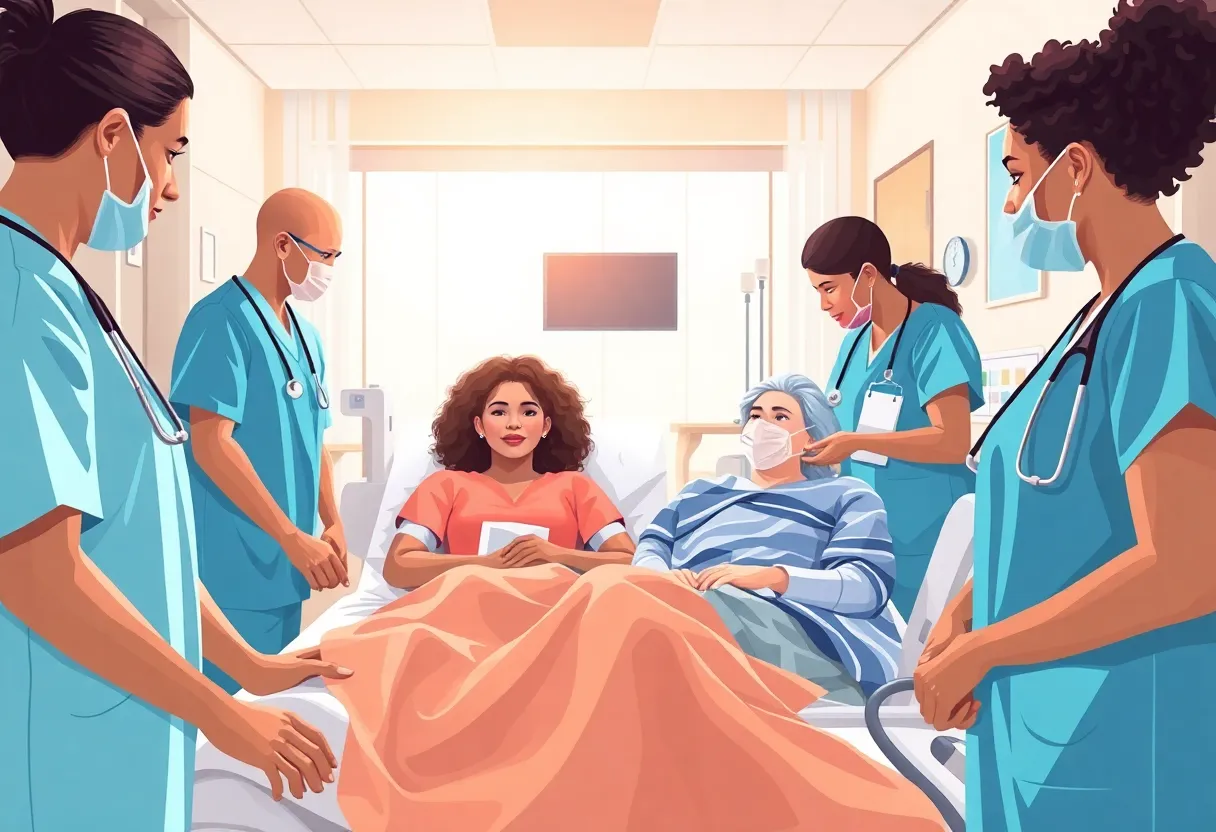

Cancer patients voice concerns over rising medical costs
Want to target the right audience? Sponsor our site and choose your specific industry to connect with a relevant audience.
Prominent brand mentions across targeted, industry-focused articles
High-visibility placements that speak directly to an engaged local audience
Guaranteed coverage that maximizes exposure and reinforces your brand presence
Interested in seeing what sponsored content looks like on our platform?
May’s Roofing & Contracting
Forwal Construction
NSC Clips
Real Internet Sales
Suited
Florida4Golf
Click the button below to sponsor our articles:
Sponsor Our ArticlesIn a significant decision, the government has decided to pause plans to raise monthly out-of-pocket medical expenses for cancer patients. This move follows widespread public dissent and concerns raised by advocacy groups regarding the financial burden on already struggling patients. Prime Minister Ishiba Shigeru announced that the review will take place after the upcoming elections, reflecting the government’s willingness to reconsider its strategies in light of public feedback. Patients and advocates are hopeful for positive outcomes that prioritize health and financial stability.
In a surprising turn of events, plans by the government to raise monthly out-of-pocket medical expenses for cancer patients are now on hold. This decision comes as a direct response to the overwhelming outcry from concerned citizens and advocacy groups who argue that the changes would add an unnecessary financial burden to already struggling patients.
The original proposal aimed to incrementally increase patients’ out-of-pocket costs over several years, starting in August 2025. The adjustments were set to happen in three stages through 2027, with the first stage poised to bring a notable hike in costs. However, with widespread opposition arising from various quarters— including patient advocacy organizations, political parties, and even some members of the ruling party—the government has decided to take a step back and reassess its strategy.
Prime Minister Ishiba Shigeru announced that the first proposed increase would be postponed, giving time for a thorough review after the upcoming elections this summer. The action follows a serious gathering of opinions from the Japan Federation of Cancer Patient Groups, which collected survey data from over 600 patients expressing strong disapproval of any increase in financial burden.
In a related survey conducted by Hodanren, enlightening data surfaced indicating that a significant proportion of individuals diagnosed with cancer are facing financial insecurity. Approximately 52.1% reported a decline in their annual income post-diagnosis due to extensive time taken off work for treatment.
The financial strain becomes even clearer when examining the out-of-pocket expenses. According to the survey results, 41% of respondents reported that their highest annual medical costs ranged between ¥500,000 and ¥1 million. With such steep costs looming, a staggering 61% of patients indicated they would consider reducing their treatments if these expenses rose. An alarming 46% shared they might even have to suspend their treatments entirely, jeopardizing their health.
Patients are understandably concerned about having to make a choice between their health and their financial well-being. Some have shared moving anecdotes about their struggles; highlights include parents expressing their wish to prioritize funds for their children’s future over their medical needs.
Currently, the High-Cost Medical Expense Benefit program allows patients to keep their monthly out-of-pocket costs in the range of 40,000 yen to 90,000 yen despite long-term medical costs spiraling upwards of 8 million yen. The government’s proposed adjustments aimed to shift the baseline used for out-of-pocket caps by 2.7% to as much as 15%, depending on income levels.
For those earning up to 7 million yen annually, the proposed changes could see their monthly costs balloon from 80,100 yen to an eye-watering 138,600 yen. This potential spike is no small matter and appears to have been a critical trigger for the public dissent.
The Japan Federation of Cancer Patient Groups rallied support against the increase, gathering a whopping 3,623 responses from patients, families, and healthcare workers campaigning against the changes. Even an online petition gained rapid traction, collecting around 75,000 signatures in just six days, showcasing the level of distress this situation has provoked.
As discussions continue, officials have expressed a willingness to hear from those who would be directly affected by these proposed changes. The government seems to be opening the floor to reconsidering its approach based on public feedback, emphasizing the importance of patient perspectives in these crucial decisions.
As we look ahead, the conversation around medical expense caps will likely become a key issue in the upcoming elections. Patients and advocates are eager to see if their voices will be heard and if more humane policies can replace proposals that could disrupt their lives. With the decision to postpone, there’s still hope that reconsideration will lead to outcomes that protect the health and financial stability of individuals battling cancer.
News Summary A new tool called the 'About Me' Care Card prioritizes dementia patients' personal…
News Summary Hawaii's Attorney General Anne Lopez partners with 22 other states to combat the…
News Summary Hawaii Attorney General Anne Lopez, leading 22 other state attorneys general, is pressuring…
News Summary Denisa Burt has officially taken the role of community-resource and homelessness-prevention coordinator at…
News Summary A coalition of 23 states has filed a lawsuit against the Trump administration…
News Summary The Bismarck-Mandan Home Show returns for its 48th annual event on March 28th…